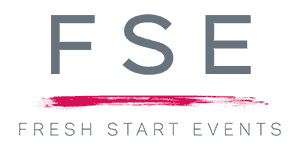A good rule of thumb is that if you aim to win a client based solely on price it’s likely that you will lose clients on price. There is always someone that will do it cheaper.
Many business owners make the fatal mistake thinking that every purchase comes down to the lowest price and commoditise their services accordingly.
Low-price buyers tend to be the ones that create the most work for you. Everything is a problem. Nothing seems to work for them and they take months to settle their bill!
They need to be avoided at all costs.
Your clients and prospects are interested in what your business can do for them. They buy products and services to solve their problems and need to know how your services will be a solution for them.
Price becomes an issue when you haven’t given your clients and prospects good reasons for them to pay the price you ask.
Yes, there will always be clients who base their buying decisions on price alone, but most of us look at the value we get.
So to be different from your competition the conversation you must have is about desirability – the advantages, outcomes and benefits of your business that will be viewed as a solution to their needs.
Price has always been an indicator of quality. Premium pricing creates an expectation of services that deliver outstanding results and if the benefits and outcomes are clear people will pay the price you ask.
At the other end of the market, offering the lowest price can position your services as being inferior and not fit for purpose, putting prospects off from buying. To move away from a low price commodity business to charging what you are worth, you need to increase the value of your services. The challenge is to offer a package of added value benefits above and beyond the core service so that the premium price you charge is justified and the client understands exactly what they are getting.
Think of it this way: benefits minus client cost = client value
What can you do to add value and apply this to your business?
Here’s an example:
Office Stationery Company
The office products industry is the perfect example of a commoditised industry with price being the leading reason to do business.
This company wanted to win new clients and move away from trading on price.
They added more value and targeted Financial Directors over stationery buyers.
Financial Directors are interested in efficiency, financial control, limiting employee time and value for money, not just the price of products.
They introduced a significant increase in value, including:
- A free audit to identify opportunities to reduce waste and consilience
- Identifying the key products used and looking for better value options
- Introducing fast efficient online ordering
- Creating detailed cost control and management information reports
- Staff training and knowledge sharing session
- Offering an account manager to be the prime point of contact
- 24 hour, next day delivery
- Monthly invoicing to save administration time
- One stop shop – introduced ranges of additional products to save time spent on procurement
The additional value opened many more opportunities and fuelled the growth of the company. Find a way to differentiate your business by adding value to give you a competitive edge.
This is just one of 13 proven ways to market and grow your business. I’ve just published a free guide – 13 Business and Growth habits of successful business owners.
If you would like a free copy go to www.fordhendersonmarketing.com

